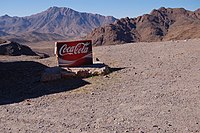I occasionally appear as a guest lecturer at EMDI, the Insititute for Media and Communication. This gives me the chance to rage at classes of stunned-looking students, somewhat in the manner of 'Hitler discovers public relations', for a good couple of hours. It's not unusual for me to see them looking like they're about to reach for the mace but don't want to be impolite. I usually work with the PR stream, but have also talked to the events management bunch and also the advertising lot.
It was when talking to the advertising stream that I was asked the question, 'Yes, but isn't public relations just lying?'
The question stopped me in my tracks, I can tell you. I realised that standing there in front of the class just looking like an electrocuted guppy at the girl who had asked the question was beginning to look rude and pulled myself together.
My answer was something along these lines. In all my time as a public relations practitioner, I have never told a lie in my professional life. I have told the truth from all sorts of angles, have highlighted the positive at the expense of the negative and have generally promoted the bejaysus out of all sorts of things, but I have never told anyone an untruth. I have never made a claim I cannot demonstrate or an assertion without proof.
PR cannot function on untruth. You have to have fact - incontrovertible, provable, demonstrable fact to back up your assertions and arguments. If you say you're the market leader, you have to be able to prove it. If you say this product has positive medical benefits, you have to be able to stand them up with research, expert endorsements and the like. Without the facts, PR falls down - publicly, embarrassingly and disastrously. That's one of the reasons we have journalists - to test this stuff and make sure that it passes a standard that our public can accept. Believe me, there's nothing a journalist likes to find more than a PR pushing a lie.
And yet this assertive question comes at me from someone about to embark on a career in an industry that is based on direct lies, telling absolute untruths and misleading people as its most fundamental tenet. The sloganeering of the advertising industry, the use of deliberately misleading images, words, phrases and ambitional role models has never been less than mendacious.
A Mars a day helps you work rest and play. Remember that one? Does it? Really? Or does a Mars a day
slap your waddling, sedentary body with 245 calories and a fat content of almost a quarter of its overall volume?
What about Axe? (Or Lynx in some markets) The clear inference is constantly drawn in its campaigns that using the product will pull you chicks. It's so clear that an Indian man is
suing Unilever because he's been spraying himself with ammonium skunkate or whatever the stuff is made out of for seven years and hasn't pulled. It's a clear lie - a deodorant won't pull women or make them go crazy. Oh, sure, it's ironic and created for purposes of amusement only. It's
playful! But your job isn't amusing, people it's selling. And you're playing with a product benefit that doesn't exist - it's not provable. Show us that 9 out of 10 women find men who wear Axe are hotter than men who don't and you're home and dry.
Or what about all the 'feminine products' that let you be the woman you are? Or the antibacterial airfreshener that makes you a better mum? Or the cheesy Italian stereotypes that punt their animated schtick to pimp a tomato sauce with an Italian name that's made by a British corporate to a recipe conceived in Australia? Wear the Dolmio smile? My butt. What about the yummy seafood for cats that has barely any fish in it - a great case study of how image and language are combined in advertising and product definition to wilfully and knowingly
mislead consumers? Or the hair products advertised by a celebrity wearing a
wig that looks better than her real hair? Truth?
I'm not going to get bogged in examples - there are a million of them out there. The fact is that advertising has held the megaphone for so long, it is no longer able to see the growing tide of consumers unhappy with being screamed at with slogans that we know don't reflect reality. But consumer voice is growing even in the Middle East, let alone in markets such as Europe (where consumer voice tends to be stronger, oddly, than the US).
We have become used to accepting that companies make claims in their advertising that are simply unsustainable. However, more and more consumers are unwilling to meekly accept those claims - the number of visits to this blog alone researching Pringles and their contents as well as Aquafina, the tap water that would like you think it was natural - are testament to that. And now I'm getting hit after hit on
American Food is Crap. People are waking up to this stuff - and to the fact that they're being sold a pup by the advertising industry.
Do PRs tell lies? No, they don't. When they do, they get caught and exposed - and quite right too. Now what's happening is we're starting to apply the same standards to high street brands and, yes, to advertising. We are starting to demand more honesty, more transparency and better standards of accountability.
I'm not saying we should take the creativity out of advertising and promotion. Far from it. But I am saying that you need to base your creative treatments on the truth and not unsustainable assertions - or lies, as I prefer to call them.




